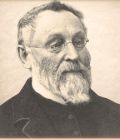COMMON NAME:
NUTMEG.
Symptoms
Especially suitable for women and children (Ignatia).
Great sensitivity of the body and pain of the parts on which one lies (Belladonna).
Wandering and pressing pains, which always only occupy a small spot (Ignatia, Kali-B), last only a short time (Bell), but soon returns (Magnesia phos.).
Drawing in the limbs, especially after catching cold, worse while at rest (Rhus-T).
PAIN IN THE LIMBS, CAUSED BY WET, COLD WEATHER (Dulcamara, Rhododendron, Rhus toxicodendron).
Great restlessness in the muscular system (Rhus toxicodendron).
Weakness of old age (Gelsemium, Lycopodium, Silicea) (A)
Vertigo, as if intoxicated (Cocc., Gelsemium) (C).
Headache from eating a little too much. (Coffea, Pulsatilla) (N)(>)
Painless pulsation in the head, with fear to go to sleep, (N.).
Dryness of the eyes; too dry to close the lids (A.).
Fatigue, must lie down after the least exertion (A).
UNCONQUERABLE SLEEP (Opium) (A.)
Drowsy, with other complaints, particularly with pain (N.).
Lies in stupid slumber (Apis, Gelsemium, Hyoscyamus, Opium) (N).
Cold, from sudden cooling off, after having perspired, with pain in the neck and in all the bones.
Oversensitive: to light: of hearing; of smell; and to touch (Belladonna, Coffea, Nux vomica) (A.).
Emaciation of scrofulous individuals (Iodium, Natrum muriaticum, Phosphorus, Tuberculinum).
Irresolute and thoughtless (Pulsatilla) (N.).
Stupor and insensibility (Apis, Arnica, Baptisia, Helleborus, Hyoscyamus, Kali- P., Lachesis, Lycopodium, Natrum muriaticum, nux vomica, Opium, Acid phosphoricum., Stram) (A).
SLOW THINKING (Gelsemium, Lycopodium, Silicea). (N).
WEAKNESS OR LOSS OF MEMORY(Anacardium, Conium, Kali-P., Lac-C., Lycopodium, Nux vomica, Phosphorus, Silicea) (A.).
Absence of mind; cannot think (Agn., Gelsemium, Nux vomica) (A).
Great indifference to everything (Sepia) (A)
Vanishing of thoughts while reading, talking, or writing; uses wrong words;does not recognize well-known streets (Cannabis indica, Gloninum, Lachesis) (A).
Sudden change from grave to gay, and from lively to serene (Plat) (A).
During menses great pressure in the back from within outward, abdominal bearing down and drawing in the limbs (N.).
At every menstrual nisus, mouth, throat and tongue become intolerably dry, especially when sleeping (N).
Physometra (Bromium, China, Lac-C., Lycopodium, Magnesia carb., Natrum carbonicum, Nux vomica, Acid phosphoricum.) (K).
Menorrhagia, blood thick, dark, with such as have had catamenia very irregularly (N).
Leucorrhoea in place of menses (Cocculus indicus) (A).
Inclination to faintness and great debility, especially in the small of the back and in the knees, with sleepiness (Kali carb.).
DISPOSITION TO FAINT FROM THE PAINS.
EVEN WHEN SLIGHT (Asafoetida, Chamomilla, Cocc., Hepar, Nux vomica, valer., Verat) (N).
Dreamy, clairvoyant state 9B.
HYSTERICAL ATTACKS (Ambr., Argentum nitricum, Calcarea phos., Ferrum, Gelsemium, Ignatia, Kali-Br., Lachesis, Mosch., Natrum carbonicum, Opium, Pulsatilla, Sepia).
Fainting and palpitation of her followed by sleep (N).
Nausea and vomiting during pregnancy, or from wearing pessaries (A.).
Constipation; Stool difficult, although soft (Alum) (B).
Of use in the spasms in children (Aconite, Aethusa, Belladonna, Cina, Cuprum, Ignatia, Magnesia phos., Stram).
Pains in the teeth from inhaling cold air, or taking warm drinks (Hr).
Dyspepsia of old people (Ant-C., Carbo vegetabilis, Lycopodium) (A).
Craving for highly seasoned food (Hep) (Br(.,
Saliva seemed like cotton (A.).
Tongue so dry, that it adheres to the root of the mouth (A.).
Painfulness and distress in the stomach while eating, or immediately after (Kali bichromicum) (A().
Greatly troubled with dryness in the mouth and throat while sleeping; always awake with a very dry tongue, but without thirst (N.).
THIRSTLESSNESS, WITH DRYNESS IN THE MOUTH AND THROAT (Puls).
WHILE EATING SOON SATISFIED(Lyc) (N).
ABDOMEN ENORMOUSLY DISTENDED AFTER EVERY MEAL (Argentum nitricum, Carbo vegetabilis Lyc) (N).
Diarrhoea; in children; in summer (Ant-C., Podophyllum) (N).
Flatulent colic (Coloc., Nux vomica, Pul.) (B).
White foetid stools (Podo) (A).
Stools contain undigested particles or are like chopped eggs (Cham) (N).
Diarrhoea: from cold drinks; from boiled milk; during sanitation; and during pregnancy (A.).
Rheumatism of the left shoulder (Rhus toxicodendron) (A).
Pain in the back while rising in a carriage. (N().
Rheumatic affections from getting feet we, or from exposure to draught of air while heated (Aconite, Bryonia) (A).
Intermittent fever, with sleepiness during the heat (Apis, Gels, Op).
Cold, dry skin.
Dry, nervous, hysterical cough (Ign) (Bt).
Cough loose after eating, dry after drinking (A(.
Sudden hoarseness form walking against the wind (Hep, Phosphorus) (N).
Cough during pregnancy (Sepia) (AS).
AGGRAVATION:
From cold, wet weather; from lying on the painful side; during menstruation; from carriage driving; from emotions; during pregnancy; from cold food; from cold water.; from cold washing; from spirituous liquors; and after eating or drinking.
AMELIORATION:
From external heat; in dry, warm weathers in a warm room; and from wrapping up warmly.
RELATIONSHIP:
Nux-M., ANTIDOTES mercurial inflation, lead colic, oil of turpentine, spirituous liquors, and especially the effects of bad beer.
Complementary; Calcarea and Lycopodium
ANTIDOTES: Camph., Gelsemium, Nux vomica and Valer.

